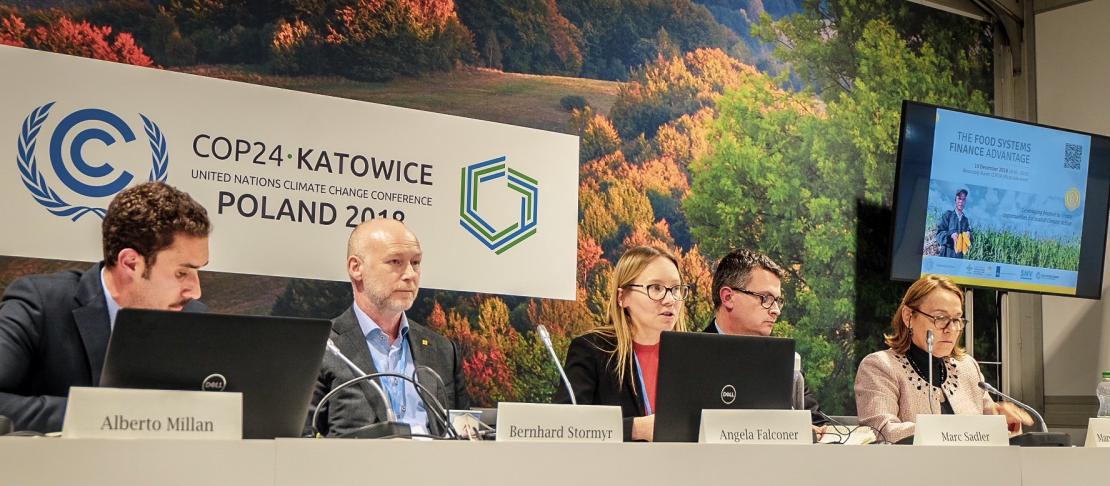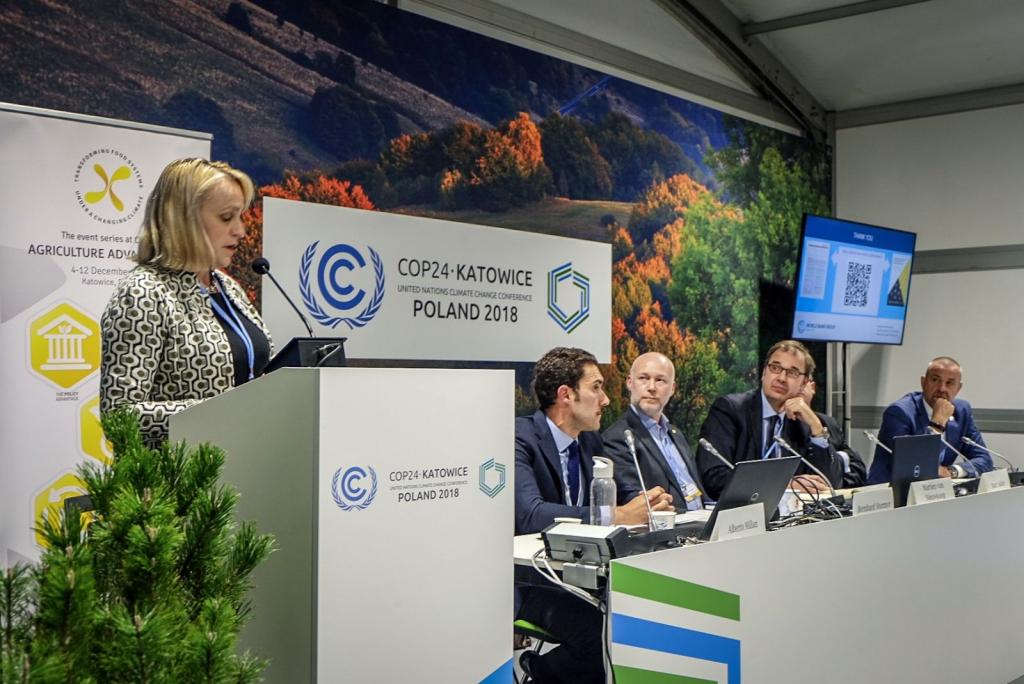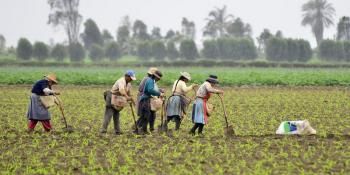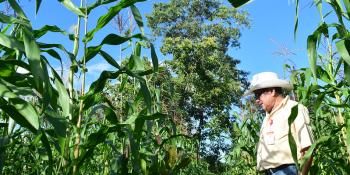Food Systems Finance Advantage: Enabling scaled climate action

At the Food Systems Finance Advantage event, part of the larger Agriculture Advantage 2.0 event series at COP24, panellists discussed opportunities and innovations to unlock the finance needed to transform food systems.
Financing low-carbon and climate resilient global food systems will require a paradigm shift in financiers' investment decision-making processes. At the Food Systems Finance Advantage event, part of the larger Agriculture Advantage 2.0 event series at COP24, public and private industry leaders in the agriculture, forestry and land-use finance space gathered to discuss financial pathways to transform global food systems.
The session, moderated by Alberto Millan, Senior Climate Finance Specialist for the CGIAR Research Program on Climate Change, Agriculture and Food Security (CCAFS), addressed the need to make public investment more climate-smart and leverage private capital at scale.
More news updates from the Agriculture Advantage 2.0 event series:
|
|---|
Catalyzing investment
Since 2000, there has been an increase in public support spending—$580 billion is provided in agricultural subsidies per year. However, as Martien van Nieuwkoop, Director of Agriculture Global Practice at the World Bank, highlighted, while 52% of this amount is spent on market price support, only 16% of it is spent on public goods, and of that, a meagre 1% on the environment.
Moreover, agricultural subsidies often result in negative climate outcomes, while market price support can discourage private sector investment and increases the vulnerability of farmers. Martien argued for the need to transform the way public support is allocated to unlock positive public-good and climate outcomes. Providing incentives for farmers and redirecting support towards climate investments and innovation could have a transformational effect.
This, however, will not be sufficient to bridge the major gap in financing the transformation of food systems. Additional capital is needed to realize impact at scale. Marc Sadler, Practice Manager of Climate Funds Management at the World Bank, proposed increased use of the ‘jurisdiction approach’. He argued it could be useful for the government and also the private sector to follow activities and behaviour within a particular zone. This could help them move beyond traditional problems with trying to manage singular supply chains, and enable them to monitor behaviours and impacts.
Food systems are a major driver of greenhouse gas emissions and land degradation. In order to transform food systems, these market failures need to be addressed by incorporating such externalities into value chains. “The private sector can really drive change” argued Bernhard Stormyr, Head of Sustainability Management at Yara International. Yara International, together with the World Business Council for Sustainable Development (WBCSD) and Oxford University, is working to assess the impact of internalising externalities.

Marjolijn Sonnema, Vice Minister of the Netherlands Ministry of Agriculture, Nature and Food Quality, encouraged action with the options and tools already available. Photo: Ratih Septivita (CCAFS)
Creating an enabling environment
One of the issues in financing is that financial services are reluctant to invest in agriculture, let alone climate-smart agriculture (CSA). To promote investment, we need good quality business cases and an enabling environment.
– Andre de Jager, Managing Director, SNV
There will be no transformation without support to vulnerable groups, such as smallholder farmers. Andre de Jager, Managing Director at SNV noted that many smallholders know what they want to achieve on their farms, but they struggle to access finance. SNV has focused on inclusive businesses, and has been working with small and medium enterprises to help them increase productivity and adapt to climate change. But while the existence of pilots is reassuring, there is a need to further develop sustainable business models that can help scale up private sector involvement.
Margarita Astralaga, Director of the Environment, Climate, Gender and Social Inclusion Division at the International Fund for Agricultural Development (IFAD), noted the importance of placing producers at the center of public-private partnerships and the imperative need to make capital flow to farmers. Since 2012, IFAD has been implementing the Adaptation for Smallholder Agriculture Programme (ASAP), which focuses on channelling climate and environmental finance to smallholder farmers. In a study undertaken in collaboration with CCAFS, the program found that effective allocation of public resources can attract private sector investment, originating positive financial, social environmental returns.
While billions have been spent on climate finance, only a small proportion of it was focused on the agricultural sector, explained Angela Falconer, Associate Director at the Climate Policy Initiative (CPI). She argued that climate finance needs to be better aligned with the needs of the agricultural sector. To do so, CPI’s Global Innovation Lab focuses on identifying, designing and piloting innovative financial instruments to de-risk and catalyze private sector investment. The Lab has recently partnered with IFAD to build up climate resilience and scale up innovative financial instruments for smallholder farmers.
The financial sector will play a crucial role in helping find solutions to scale up climate-smart investments and enable the transformation of food systems. But significant changes, such as redirecting public spending and support to achieve positive public-good and climate outcomes, will be critical to reach these goals.
I’m of the firm conviction that a lot of measures to tackle climate change challenges are already available, but it’s vital to translate these into projects that deliver concrete solutions on the ground. [...] It’s time to walk the talk.
– Marjolijn Sonnema, Vice Minister, Ministry of Agriculture, Nature and Food Quality, Netherlands
Couldn't attend the event? Watch the web recording here (click "Join the event" to watch).
Presentations from the event:
- Climate Smart Public Support - Martien van Nieuwkoop, Agriculture Global Practice at the World Bank
- Addressing the financing Gap - Andre de Jager, SNV Netherlands Development Organisation
Read more:
- CCAFS briefing: A 6-part action plan to transform food systems under climate change, available in 2 formats: Exposure story with animated graphics | downloadable Info Note
- CCAFS webpage: Invest in climate change and agriculture
- CCAFS working paper: Climate change mitigation and food loss and waste reduction: Exploring the business case
- CCAFS working paper: Access to and supply of finance for enhancing dairy productivity
- IFAD and CCAFS report: The Business Advantage: Mobilizing private sector-led climate actions in agriculture
Fatime Traore is a Communications Student Assistant for CCAFS. Alberto Millan is Senior Climate Finance Specialist for CCAFS.



